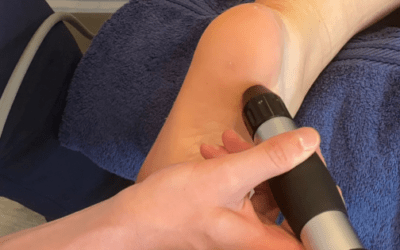Since lockdown we have helped lots of runners!
Lots of new people have been using the couch to 5k App to build up their running, or people who normally run on the treadmill have been running outside.
I am a runner and it is great to hear and see people taking up running again or running for the first time, however please read this for some tips and advice about what things you can do to reduce the risk of getting injured.
- Get a decent pair of running trainers, I wear Asics but there are lots of good running shoes out there. There are three local running shops who all offer a running assessment and give advice about the best trainer to suit you – Run Company, Alexandra Sports and Alton Sports.
- Do some strengthening exercises, this is the most important! We treat a lot of runners who are new to running but also a lot of club runners and triathletes too, from Denmead Striders, Emsworth Joggers, Fareham Crusaders, Portsmouth Triathletes. Strength and conditioning reduces overuse injuries by 50%. According to the evidence, “Strength training reduced sports injuries by less than a 1/3 and overuse injuries could almost be halved” (Lauersen et al, 2013). It also improves performance and running times.
- Vary your runs, do not run hard and fast all the time. The research shows that 80% of your runs should be low intensity and only 20% should be high intensity (tempo, speed, interval, hills). For new runners and those getting back into running this means don’t just go out and run as fast as you can all the time.
Do one-two speed/tempo sessions a week, this might be:
- run two minutes as fast as you can, then jog slowly for two minutes
- run 400 meter reps x 8012 with 45 second recovery, find a hill run up and down that hill for 8 minutes, 9 minutes, 10 minutes, rest for 3 minutes in between
- a tempo run – this is when you go out and run your route as fast as you can
- Do 80% low intensity, slower runs.
Doing more high-intensity exercise may not actually improve performance and may increase the risk of getting injured (https://www.running-physio.com/key/)
- Build up slowly – don’t put on your trainers and run 10k when you haven’t run for 6 months, if you are new to running or returning to running after a long time off then follow c2 5k. Slowly build up, increase weekly mileage by 10% at the most, this is really important too as 80% of running injuries are from overuse, doing too much too soon.
- Getting a good night’s sleep, 7-9 hours is so important for your muscles to recover – Bonnar et al. (2018) acknowledge that 7 to 9 hours of sleep per night is recommended for healthy adults but athletes need 9 to 10 hours of total sleep to reach their full potential (running physio).
- Be careful with Strava! We see a lot of people who decide they want to beat their friends segments, so push too hard and get injured, try and use Strava for your own personal use so you don’t risk pushing and overloading your muscles, joints and tendons and getting injured.
- Should I stretch or not – it is much more important to do exercises to keep your muscles strong as the reason they get tight a lot of the time is because they are weak.




